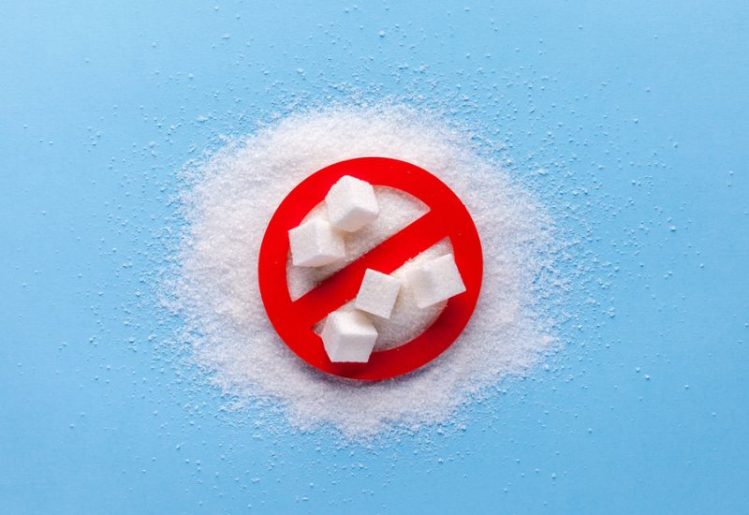4 Surprising Sugar Facts That May Convince You to Kick the Habit
For years, we have known that sugar is an unhealthy habit that leads to obesity and oral health problems, such as tooth decay. While these problems are serious in themselves, more recent research has discovered that too much sugar adversely affects health in many other ways. Learning how sugar complicates your current and future health can help you see why it's important to pay closer attention to your sugar consumption. These little-known sugar facts may convince you to kick the habit.
How Does Sugar Affect Your Health?
 It has been found that the excessive consumption of sugar raises your risks for cardiovascular disease. A Harvard study that spanned 15 years found that in people whose sugar consumption made up 17 to 21 percent of their total calorie consumption had a 38 percent higher chance of developing heart health issues. People with sugar consumption that only represented 8 percent of their overall caloric intake did not face that same health risk.
It has been found that the excessive consumption of sugar raises your risks for cardiovascular disease. A Harvard study that spanned 15 years found that in people whose sugar consumption made up 17 to 21 percent of their total calorie consumption had a 38 percent higher chance of developing heart health issues. People with sugar consumption that only represented 8 percent of their overall caloric intake did not face that same health risk.
We also know that too much sugar leads to insulin resistance, resulting in a higher risk for diabetes. There are a number of diabetes-related illnesses that are complicated by excessive sugar intake. These medical conditions include liver cirrhosis and dementia.
Additionally, excessive sugar intake leads to chronic inflammation. If you have experienced weight gain and obesity for an extended period of time, the chances are good that you do suffer from chronic inflammation. This condition can increase the risks of damage to your gut, raise your cholesterol, increase your risk for allergies and lead to higher cancer risks.
How Much Sugar is Too Much?
The adverse effects of too much sugar may lead you to wonder how much sugar is excessive. There's a good chance you're consuming significantly more sugar than you should even if you think you're going easy on it.
While there are many different health organizations that have set their own guidelines for sugar intake, the World Health Organization suggests that no more than 5 percent of your daily caloric intake should come from sugar. In looking at a 2,000-calorie daily diet, that's no more than six teaspoons or 25 grams per day. By way of comparison, one can of soda contains approximately 39 grams of sugar.
4 Sugar Facts You Might Not Know
In addition to the commonly known effects of high sugar intake, there are other less popular sugar facts that you should know. Making yourself aware of these facts can make it easier to control your intake of sugar.
1. Sugar is Everywhere
Something that most people don't realize is that sugar is in almost every product you buy. All processed and packaged foods have some amount of added sugar for enhanced flavor. When these products also include carbohydrates, you're actually doubling your sugar intake. Your body will convert carbs into sugar, so be wary of snacks, pasta and condiments that have both carbs and added sugar.
2. Sugar Really is Addictive
Even though sugar isn't classified as a drug, it has the same effects on the brain as some narcotics. When you consume a high amount of sugar, your brain releases dopamine, which is a "feel-good" neurotransmitter. Since your mind will crave that sensation, you'll look for more high-sugar products. This can lead to a cycle of sugar addiction that can adversely affect your mental and physical health.
3. There Are Several Types of Sugar
The more commonly used types of sugar come from monk fruit, stevia leaves, xylitol, erythritol and the roots of the yacon plant. Even though some of these types of sugar are classified as sugar substitutes, they all have similar effects on the body. These products lead to bloating, dental decay and increased intestinal gas when consumed in large quantities. Additionally, the body converts each gram of sugar to four calories and the sugar increases blood glucose levels.
4. Artificial Sweeteners Aren't a Great Alternative
Even though artificial sweeteners won't directly affect blood glucose levels, they do increase the cravings for sweets. That's because many artificial sweeteners, such as aspartame, sucralose, acesulfame and saccharin, are even sweeter than natural sugar. They also contain carcinogens and other toxins that can harm your health in other ways.
Ways to Reduce Your Sugar Intake
Although it can be difficult to get away from sugar, there are a few different things you can do to keep your consumption more manageable. These tips can help you significantly reduce your sugar intake.
Ditch Your Sugary Drinks
Everything from fruit juice to energy drinks contains large amounts of added sugar. Quitting a soda habit may be difficult, but it will benefit your health. If you're unable to quit cold turkey, try reducing the number of servings you consume each day. You can also water down your sugary drinks to reduce the amount of sugar you take in with each serving.
Read Food Labels
As previously mentioned, added sugar and carbohydrates will significantly impact your health. Be sure to read the labels to compare sugar and carb content between different brands. Check the list of ingredients as well. Even though a product may not have sugar, it might have another sweetener in its place.
Stop Eating Processed Sweets
 Rather than buying ice cream and pastries to satisfy your craving for sweets, buy fruits instead. You can freeze strawberries and other berries for a cold and sweet treat. While natural fruits still have some sugar, they don't have the high amounts of added sugar that come with processed sweets.
Rather than buying ice cream and pastries to satisfy your craving for sweets, buy fruits instead. You can freeze strawberries and other berries for a cold and sweet treat. While natural fruits still have some sugar, they don't have the high amounts of added sugar that come with processed sweets.
As you change your diet, keep in mind that you can positively impact your health by eating more natural foods. Look for more high-fiber fruits and vegetables. The fiber will help your body to better regulate blood glucose levels while leaving you feeling satisfied for longer. If you are looking to promote healthy glucose metabolism or are concerned about maintaining healthy blood sugar levels within normal ranges, a supplement like Diabetichron can also be helpful. In a short time, you'll begin to notice the positive effects of reducing your sugar intake.




